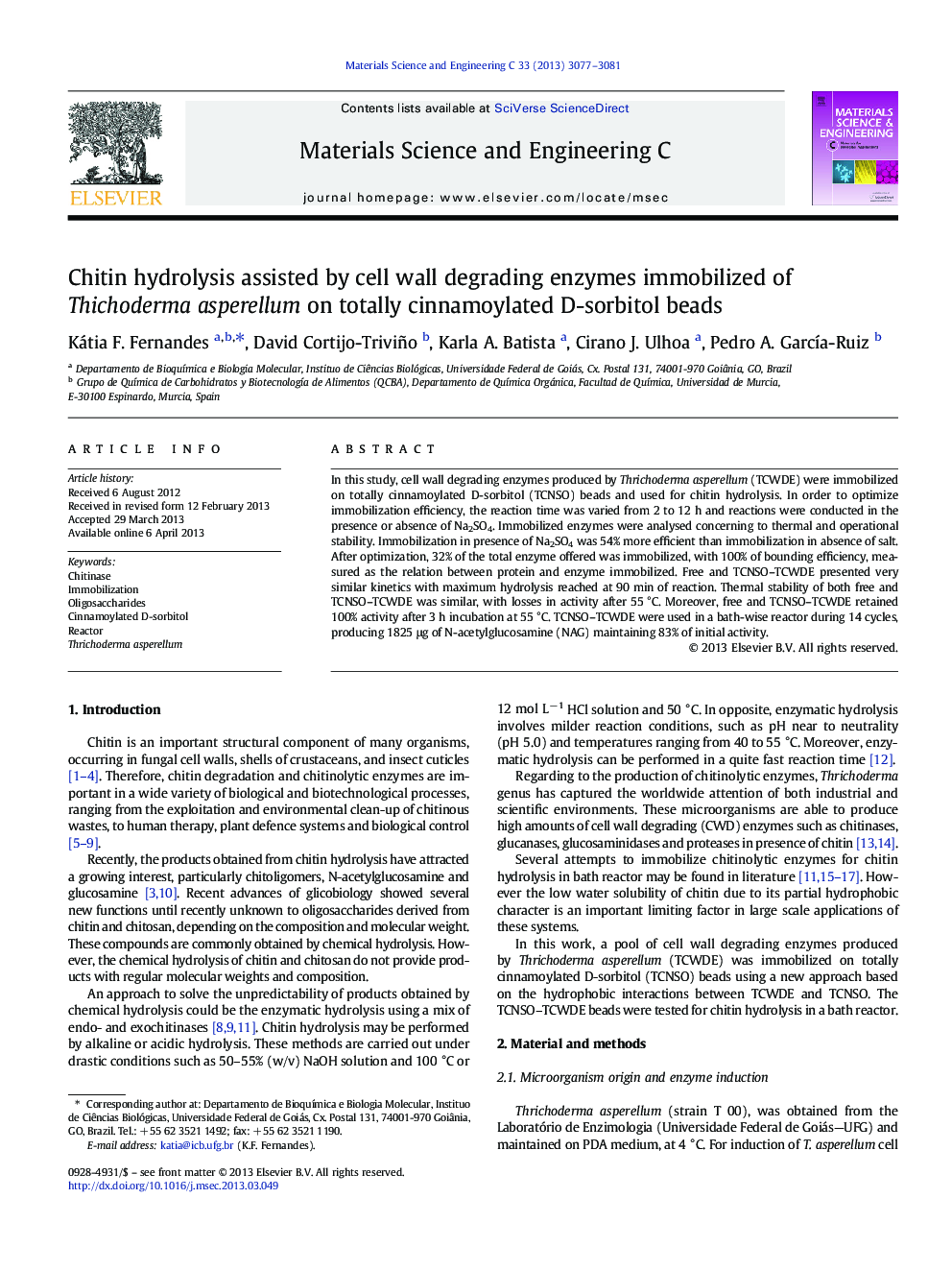| Article ID | Journal | Published Year | Pages | File Type |
|---|---|---|---|---|
| 10614703 | Materials Science and Engineering: C | 2013 | 5 Pages |
Abstract
In this study, cell wall degrading enzymes produced by Thrichoderma asperellum (TCWDE) were immobilized on totally cinnamoylated D-sorbitol (TCNSO) beads and used for chitin hydrolysis. In order to optimize immobilization efficiency, the reaction time was varied from 2 to 12 h and reactions were conducted in the presence or absence of Na2SO4. Immobilized enzymes were analysed concerning to thermal and operational stability. Immobilization in presence of Na2SO4 was 54% more efficient than immobilization in absence of salt. After optimization, 32% of the total enzyme offered was immobilized, with 100% of bounding efficiency, measured as the relation between protein and enzyme immobilized. Free and TCNSO-TCWDE presented very similar kinetics with maximum hydrolysis reached at 90 min of reaction. Thermal stability of both free and TCNSO-TCWDE was similar, with losses in activity after 55 °C. Moreover, free and TCNSO-TCWDE retained 100% activity after 3 h incubation at 55 °C. TCNSO-TCWDE were used in a bath-wise reactor during 14 cycles, producing 1825 μg of N-acetylglucosamine (NAG) maintaining 83% of initial activity.
Related Topics
Physical Sciences and Engineering
Materials Science
Biomaterials
Authors
Kátia F. Fernandes, David Cortijo-Triviño, Karla A. Batista, Cirano J. Ulhoa, Pedro A. GarcÃa-Ruiz,
